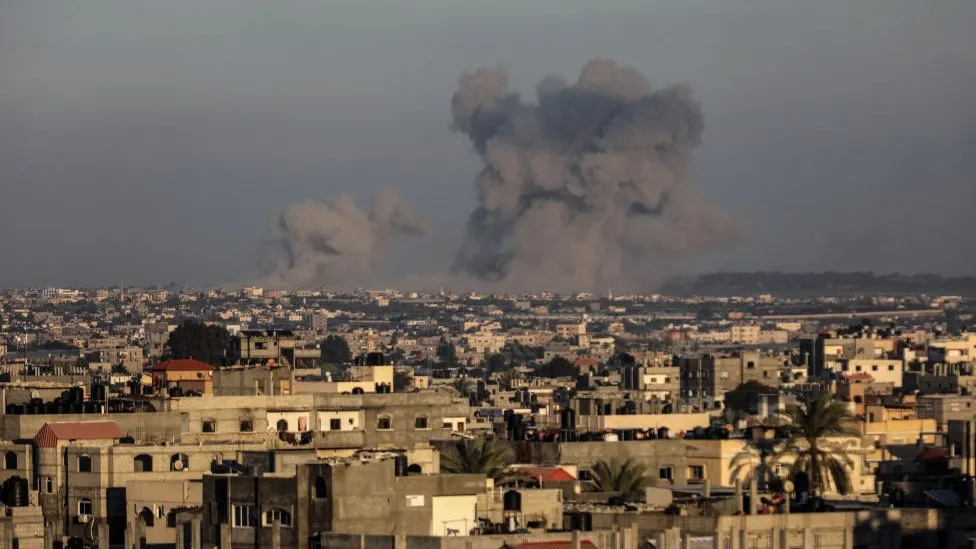Israeli Defence Minister Yoav Gallant has outlined proposals for the future governance of Gaza once the war between Israel and Hamas is over.
There would, he said, be limited Palestinian rule in the territory.
Hamas would no longer control Gaza and Israel would retain overall security control, he added.
Fighting in Gaza continued alongside the plan’s publication, with dozens of people killed in the previous 24 hours, the Hamas-run health ministry said.
US Secretary of State Antony Blinken is due back in the region this week. He is expected to hold talks with Palestinian officials in the occupied West Bank and Israeli leaders.
His visit comes amid heightened tensions in the region following the assassination of top Hamas leader Saleh al-Arouri on Tuesday in Lebanon’s capital Beirut. His killing has widely been blamed on Israel. Israel has neither confirmed nor denied involvement.
Under Mr Gallant’s now “four corner” plan, Israel would retain overall security control of Gaza.
A multi-national force would take charge of rebuilding the territory after the widespread destruction caused by Israeli bombing.
Neighbouring Egypt would also have an unspecified role to play under the plan.
But the document adds that Palestinians would be responsible for running the territory.
“Gaza residents are Palestinian, therefore Palestinian bodies will be in charge, with the condition that there will be no hostile actions or threats against the State of Israel,” Mr Gallant said.
The plan was not discussed in any detail in the cabinet meeting and Israeli Prime Minister Benjamin Netanyahu has not publicly commented on it. The meeting is reported to have broken up amid acrimony with some ministers angrily objecting to names put forward for an investigation into the events surrounding the 7 October attack by Hamas.
Talk of the “day after” in Gaza has led to deep disagreement in Israel.
Some far right-wing members of Mr Netanyahu’s government have said that Palestinian citizens should be encouraged to leave Gaza for exile, with the reestablishment of Jewish settlements in the territory – controversial proposals that have been rejected as “extremist” and “unworkable” by other countries in the region and by some of Israel’s allies.
While Mr Gallant’s proposals may be regarded as more practical than those suggested by some of his cabinet colleagues, they are likely to be rejected by Palestinian leaders who say that Gazans themselves must be allowed to take full control of running the territory once this devastating war is over.

Mr Netanyahu has not publicly talked in any detail about how he thinks Gaza should be governed.
He has suggested that the war in Gaza may yet last several months, with the avowed goal being to completely crush Hamas.
Mr Gallant’s plan also outlined how the Israeli military aims to proceed in the next phase of the war in Gaza.
He said the Israel Defense Forces (IDF) would take a more targeted approach in the north of the Gaza Strip, where operations will include raids, demolishing tunnels and air and ground strikes.
In the south, the Israeli military would continue to try to track down Hamas leaders and rescue Israeli hostages, he said.
On Thursday, the IDF said it had hit areas in Gaza’s north and south, including Gaza City and Khan Younis.





































